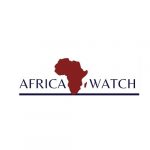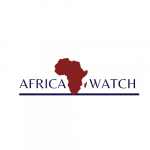The M23 armed group is unlawfully forcing hundreds of civilians from their homes in the Democratic Republic of Congo’s conflict-ridden North Kivu province, Human Rights Watch (HRW) revealed in a June 18 report. These forced transfers, often under threats of violence, signal a grave deterioration of the humanitarian and human rights situation in the region.
Since March 2024, M23 rebels have taken over several towns in eastern Congo with the tacit support of the Rwandan military, according to UN experts. In the areas under their control, HRW documented a pattern of forced relocations where villagers were compelled to move to specific “grouping sites” under rebel surveillance. Many said they were threatened with violence if they refused.
“These forced transfers not only separate families and expose civilians to hardship but also amount to war crimes under international law,” said HRW’s senior Congo researcher Thomas Fessy.
Violations of the African Charter on Human and Peoples’ Rights
The actions by M23 constitute egregious violations of multiple provisions of the African Charter on Human and Peoples’ Rights:
-
Right to Liberty and Security of the Person (Article 6): The use of coercion to forcibly relocate civilians, often accompanied by threats or actual violence, constitutes arbitrary deprivation of liberty, in direct violation of Article 6 of the Charter.
-
Right to Property (Article 14): Forcibly transferring civilians and occupying their homes without lawful justification or compensation undermines their right to own and enjoy property as enshrined in Article 14.
-
Right to Freedom of Movement and Residence: While not explicitly named in the Charter, the right to choose one’s residence is integral to the enjoyment of liberty and property, and is implicitly protected through Articles 6 and 14.
-
Duty of States (Article 1): The Congolese government bears the responsibility to protect civilians and uphold the rights enshrined in the Charter. Its failure to effectively prevent the M23 occupation or to safeguard affected populations reflects a breach of its obligations under Article 1.
-
Right to Non-Discrimination (Article 2): Victims report being targeted based on their perceived affiliation with the Congolese government or ethnic identity. Discrimination on such grounds undermines Article 2 protections.
A Call for Accountability
The HRW report urges Congolese authorities to investigate these abuses and prosecute those responsible. It also calls on the UN and African Union to increase monitoring efforts and push for urgent humanitarian access to displaced populations.
Human rights advocates warn that if left unchecked, the situation could further unravel, plunging the region deeper into instability. The international community must hold both state and non-state actors accountable, and demand adherence to the African Charter’s core principles.

